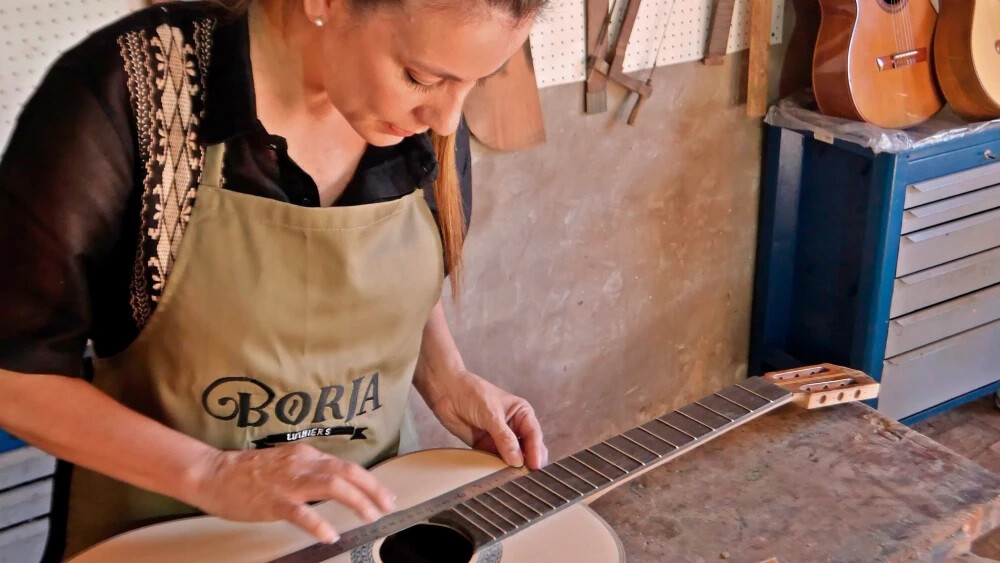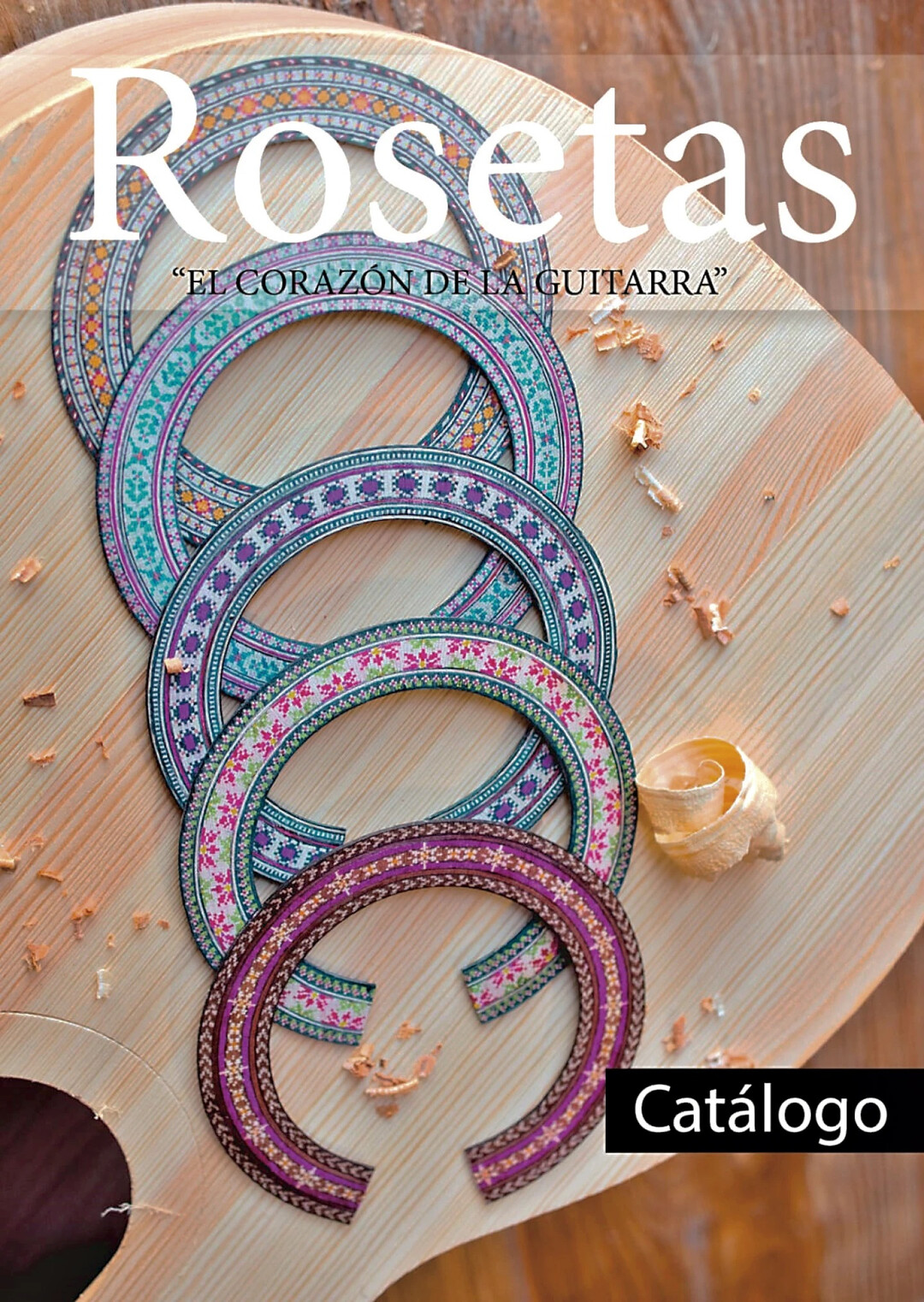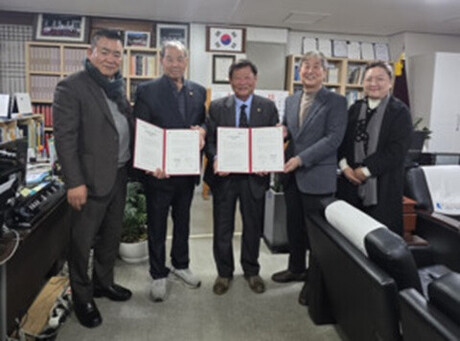
ASUNCIÓN, Paraguay – For those with a discerning appreciation for musical instruments, every detail resonates. Among these, the rosette – the decorative inlay adorning or carved around a guitar's soundhole – stands out as a particularly distinctive element.
Amidst a sea of rosettes, "Rosetas Borja," imbued with the spirit of the Guarani people, has emerged from the enduring aspirations of the Borja family of instrument makers. Today, these meticulously crafted designs, inspired by Paraguayan traditions and customs, are garnering international acclaim, establishing a unique and compelling presence in the world of lutherie.
A Dream Nurtured by Family Legacy
Typically, rosettes are not readily available and are not locally produced in Paraguay, often necessitating lengthy import processes. It was within this landscape of limited access that the Borja family of luthiers pioneered "Rosetas Borja," becoming trailblazers in their field.
Luz Borja, the entrepreneur and luthier behind the venture, stated, "The mission of Rosetas Borja is to offer both Paraguayans and foreigners a piece of our culture embodied within their guitars through music. Furthermore, it is to ensure that all Paraguayan musicians feel pride in a national brand crafted with honesty, sincerity, and love."
Borja explained that each rosette serves as a testament to her grandparents' unfulfilled dream of having a high-quality guitar brand with distinctive ornamentation that would narrate their story.
"Sometimes, the dreams of our loved ones become our own, and we strive to make them a reality. This was precisely the dream of Cayetano Borja, who is no longer with us," she added poignantly.
The Artistry Behind the Enchantment
The artisans at the Borja workshop breathe life into these rosettes, operating under the guidance of experts in the field. A significant milestone in their journey was the opportunity in 2019 to receive training from instrument makers in Paracho, Michoacán, Mexico, with the support of the Mexican Embassy in Paraguay. This experience allowed them to refine their techniques and broaden their stylistic horizons. Paracho, a city renowned for centuries as a hub of fine instrument making, provided invaluable expertise.
"Rosetas Borja began not as a product for sale, but as an intricately crafted, exclusive collection intended for our own instruments," Luz Borja emphasized. "This allows each instrument to possess a unique personality through our own mosaic."
The diverse designs of the rosettes draw inspiration from Paraguayan culture, highlighting the art and customs that distinguish Paraguay and its people, ensuring that familial roots are never forgotten.
"The objective of Guitarras Borja has always been to contribute to elevating the national image through our art. This is why we put immense effort into developing the design and concept of each rosette," she elaborated. "Today, when we speak of an authentically Paraguayan guitar, it is accompanied by ornamentation inspired by our culture, reflecting pride in our women, artisans, and indigenous communities. Through this, we also aim to pay homage to the great artists who have left a significant mark on the history of our music. Without roots, there is no identity."
The rosette designs are conceptualized by Guadalupe Quiñónez of Morena Toro, with significant input on design themes from Victoria Segovia Borja, an apprentice within the Borja family. Luz and Aníbal Borja played instrumental roles in mastering the art of inlay with the support of the Mexican luthiers.
The product line developed by Guitarras Borja encompasses rosettes for classical, popular, and folk guitars. "Each of these rosettes has a unique name and concept, from which the necessary elements for designing each piece are extracted. We have an exclusive collection of five rosette designs inspired by Paraguayan culture," Luz Borja explained.

Designs Woven with Color and History
The collection comprises five distinct rosette designs: "Roseta Karaguata," inspired by indigenous communities; "Roseta Pasionaria Burucuya," embodying the essence of the Mburucuyá (passionflower), Paraguay's national flower; "Roseta Cayetano," a tribute to their patron saint, San Cayetano; "Roseta Las Abejas" (The Bees), inspired by Nitsuga Mangoré; and "Roseta Kuña" (Woman), celebrating Paraguayan women.
"We must take great pride in our identity and roots and find ways to convey the immense richness of our culture to new generations," Luz Borja asserted, adding that their mission is to elevate the history and culture of Paraguay, as well as their family's legacy, to the highest level.
"All that remains for us is to continue illuminating our rich Paraguayan history through the art of instrument making, building upon dreams with passion and constant innovation," Luz Borja concluded.
Glossary of Terms:
Rosette: An ornamental design, often circular or polygonal, inlaid or carved around the soundhole of stringed instruments such as guitars and lutes. Its primary function is aesthetic, enhancing the instrument's beauty. They are made from various materials and techniques, often reflecting the characteristics of a particular culture or maker.
Guarani: An indigenous people of South America, primarily residing in Paraguay, Brazil, Argentina, and Bolivia. Their culture and language are deeply ingrained in Paraguayan society.
Luthier: A French term for a craftsperson who builds or repairs stringed instruments. Luthiers possess skilled techniques to manage all stages of instrument making, from material selection to design, construction, and tuning.
Paracho: A city in the state of Michoacán, Mexico, renowned for centuries as a center for the production of musical instruments, particularly guitars. It is home to many artisans who produce high-quality instruments using traditional handcrafted methods.
Marquetry: An art form involving the creation of decorative patterns by inlaying thin pieces of materials such as wood, mother-of-pearl, or ivory onto the surface of furniture, musical instruments, and other objects. It requires precise hand skills and artistic sensibility.
Nitsuga Mangoré: One of the pseudonyms of Agustín Pío Barrios, a legendary Paraguayan guitarist and composer. His music, influenced by Paraguayan folk traditions, developed a unique style and remains a highly respected part of the classical guitar repertoire worldwide.
Passiflora caerulea: The national flower of Paraguay, known for its unique and beautiful floral structure. In Paraguay, it is called "Mburucuyá."
[Copyright (c) Global Economic Times. All Rights Reserved.]






























